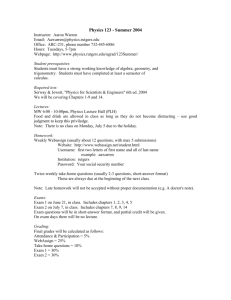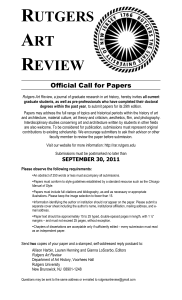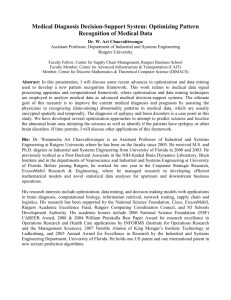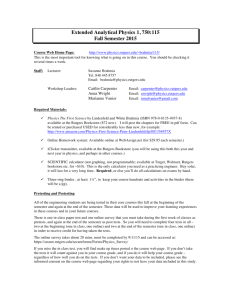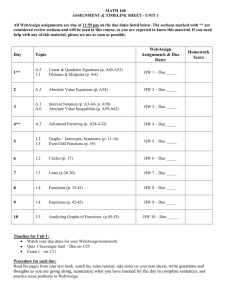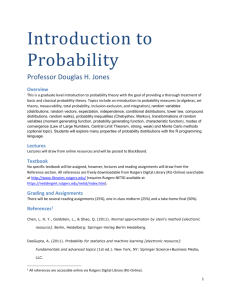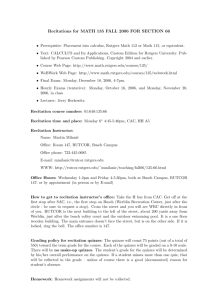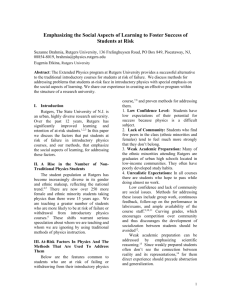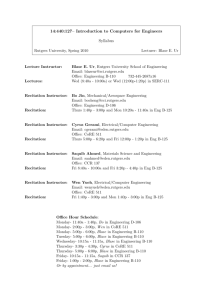Welcome to Rutgers!! (for the upperclassmen, Welcome Back!) This
advertisement
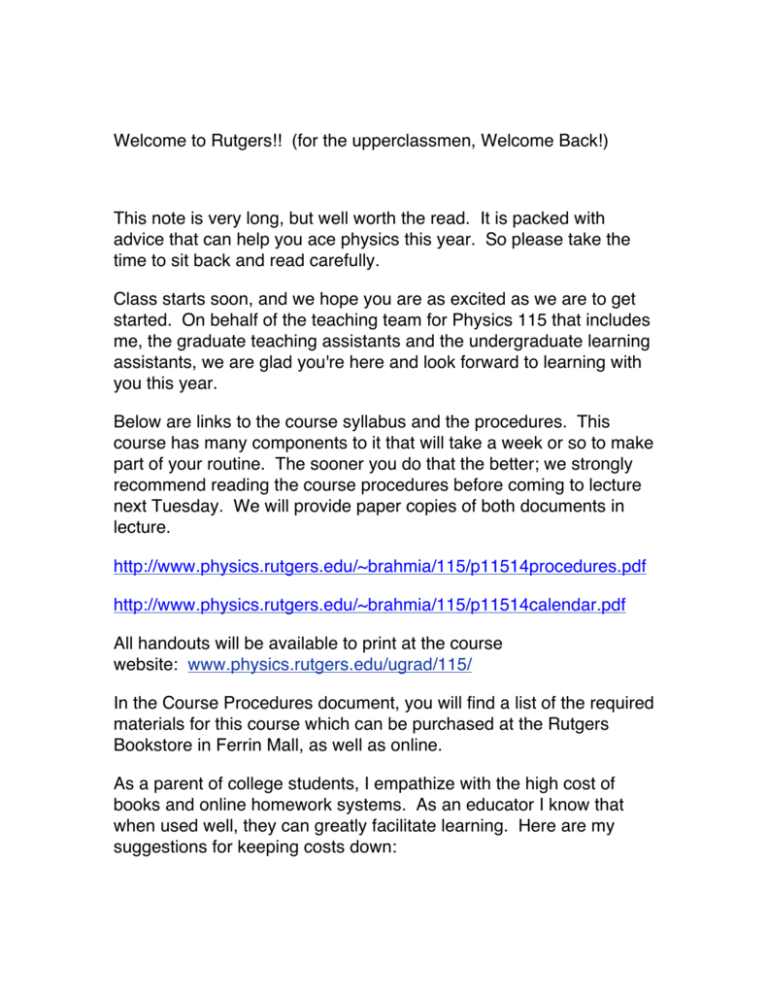
Welcome to Rutgers!! (for the upperclassmen, Welcome Back!) This note is very long, but well worth the read. It is packed with advice that can help you ace physics this year. So please take the time to sit back and read carefully. Class starts soon, and we hope you are as excited as we are to get started. On behalf of the teaching team for Physics 115 that includes me, the graduate teaching assistants and the undergraduate learning assistants, we are glad you're here and look forward to learning with you this year. Below are links to the course syllabus and the procedures. This course has many components to it that will take a week or so to make part of your routine. The sooner you do that the better; we strongly recommend reading the course procedures before coming to lecture next Tuesday. We will provide paper copies of both documents in lecture. http://www.physics.rutgers.edu/~brahmia/115/p11514procedures.pdf http://www.physics.rutgers.edu/~brahmia/115/p11514calendar.pdf All handouts will be available to print at the course website: www.physics.rutgers.edu/ugrad/115/ In the Course Procedures document, you will find a list of the required materials for this course which can be purchased at the Rutgers Bookstore in Ferrin Mall, as well as online. As a parent of college students, I empathize with the high cost of books and online homework systems. As an educator I know that when used well, they can greatly facilitate learning. Here are my suggestions for keeping costs down: The book: Our textbook is designed to help you develop your abilities to read and comprehend college level science writing, in addition to preparing you for the rigor of engineering problem-solving. Given that many pre-college physics courses focus almost uniquely on problemsolving and do not involve much reading, we consider guiding you to develop college level reading skills in the physical sciences to be an important part of our job because it is an essential skill for all professionals in the sciences. We expect you to use the textbook differently than you have in other physical science courses – it is not designed to be an encyclopedic reference book. You will note that I am an author on our book. Rutgers makes little on the book when you buy it new, and absolutely nothing if you don’t buy it new. I make nothing either way, and I prefer that you save your money and get it as inexpensively as possible. You can buy it used or rent it, and there are other ways of getting copies, I’ve been told, so ask your peers. My interest is that you have access to a copy of the book as inexpensively as possible, and I am not offended nor do I feel cheated if you get it for free or cheap. If I could do it legally, I would scan it and post it for you to use. The best I can do legally is to provide the first chapter online (at the course website), in order to give you time to find a cheap copy of your own. I will not ask you to buy an expensive encyclopedic textbook because there are many good alternative resources to help you develop problem-solving prowess. There is a link on the course web page for a free, online ebook that is just as good as all of the encyclopedic physics textbooks that are commonly used at this level. Many online resources, like Wikipedia, provide succinct and easy to read references for problem solving. Learning to use them to your advantage is part of becoming more expert-like in physics. In addition, we will make available many free paper copies of these kinds of books in Serin 130 for anyone who feels that they’d like to own one, or you can pick one up used for very little money if you have favorite author. These types of physics books are almost identical to each other, and they change very little from edition to edition. So the very cheap 5th edition is almost identical to the $200 13th edition. In this course we will help you develop your ability to use these kinds of cheap or free resources effectively. The online homework: Although online homework can be aggravating as a student because of the inherent inflexibility of computers, there is a lot of published evidence showing that students persist longer in trying to solve problems with these systems than they do with paper and pencil alone, which is very helpful in developing basic skills. Practice with these fundamental kinds of physics problems is an essential preparation for the more sophisticated open-ended kinds of problems that we will tackle in recitation and on exams. But online homework can be an expensive waste of time if you as a student don’t use the tool effectively. Here are two recommendations to always keep in mind: 1. Struggle first: We expect, and even hope, that you will discuss challenging problems with your colleagues but only after you have read through and struggled on your own for a while. Avoiding the struggle by getting help on problems too quickly is a waste of your time. 2. Create and compose alone: When you get help from anyone, you should always be the person doing the writing. Someone might show you HOW they do something but you should really insist on understanding WHY they do it. That way you will be able to create your own way which will help you with unfamiliar problems, not just parrot someone else’s way of solving one specific problem. You should always be able to do a problem from beginning to end with no guidance before you are ready to submit your answers. Lastly, we are always in the process of trying to create the best possible learning environment in this course. In the interest of improving the course we will be administering diagnostic tests at the beginning and at the end of the semester in recitation and online to measure how effectively we are meeting our teaching goals. These diagnostic tests will not affect your course grade, but we ask that you participate with full effort. We'd also like to alert you to the fact that your first online homework assignment is due Friday of the first week of classes. You can do it anytime before that but you will not be able to submit it after 11:59 PM on Friday September 5th . Go to webassign.net to get registered and get started. 1. The course ID for WebAssign (online homework system) is: rutgers 9870 7696 2. These are the instructions for registering on WebAssign: http://www.webassign.net/manual/student_guide/t_s_enrolling_ class_class_key.htm We are looking forward to meeting you soon! Dr. Suzanne Brahmia, for the 115 teaching team
